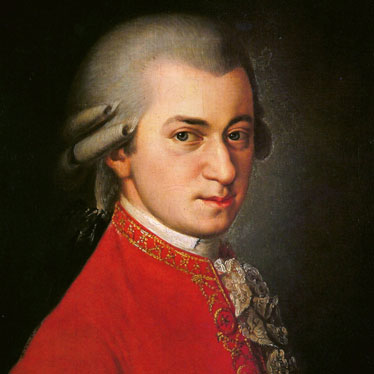
Nearly every music student knows a few works by Mozart. His music is iconic—played in concert halls, studied in classrooms, and cherished by listeners around the world. But beyond the familiar melodies lies the extraordinary life of a man whose genius changed music forever.
Wolfgang Amadeus Mozart wasn’t just a prolific composer; he was a child prodigy, a rebel, and a legend. Despite living only 35 years, he left behind a legacy that continues to shape classical music as we know it.
Here are 20 fascinating facts about Mozart’s life to help you better understand the man behind the music—and why he’s still one of the most celebrated figures in Western history.
1. His full name was a mouthful.
Mozart was christened Johannes Chrysostomus Wolfgangus Theophilus Mozart. He later adopted “Amadeus” (Latin for “beloved of God”), which stuck.
2. He was born in Salzburg on January 27, 1756.
At the time, Salzburg was part of the Holy Roman Empire. Mozart remained a devout Catholic his entire life.
3. Musical talent ran in the family.
His father, Leopold Mozart, was a respected composer and violinist who worked for the Prince-Archbishop of Salzburg. He also published a well-known violin textbook the same year Mozart was born.
4. He showed talent at just three years old.
Mozart would listen to his older sister, Maria Anna ("Nannerl"), during her clavier lessons and began picking out intervals and harmonies on his own.
5. He started composing at age five.
By the time most kids were learning their ABCs, Mozart was writing short compositions and performing confidently on the clavier.
6. Only he and his sister survived infancy.
Out of six children born to Leopold and Anna Maria Mozart, only Wolfgang and Nannerl lived beyond early childhood.
7. He composed over 600 works.
Mozart’s music is cataloged in the Köchel-Verzeichnis (Köchel Catalog), numbered chronologically from K.1 to his unfinished Requiem at K.626.
8. He toured Europe as a child prodigy.
Beginning at age seven, Mozart traveled extensively with his family, performing for royalty in Vienna, Munich, Paris, London, and Prague.
9. He wrote his first symphony at age eight.
Composed while in London in 1764, his first symphony (K.16) revealed his growing command of orchestral writing.
10. He learned from the best.
During his travels, Mozart met J.C. Bach (son of J.S. Bach), who became a mentor and major influence on his musical development.
11. He once transcribed a secret Vatican piece by ear.
At age 14, after hearing Allegri’s Miserere in the Sistine Chapel (a piece forbidden to be copied), Mozart famously wrote it down from memory—nearly perfectly.
12. He quit his court job to be a freelance musician.
In 1777, Mozart left his secure court position with the Archbishop of Salzburg to pursue independence—something rare at the time.
13. He struggled with money—and emotions.
Like many artists, Mozart’s life was filled with highs and lows. He faced financial troubles and periods of depression, despite widespread acclaim.
14. He was knighted by the Pope.
In 1770, Pope Clement XIV awarded Mozart the Order of the Golden Spur in recognition of his contributions to sacred music.
15. His later years were marked by financial strain.
By the late 1780s, Mozart’s popularity had declined, and his income from concerts dried up. Some scholars believe this was a time of emotional turmoil.
16. 1791 was both his most productive and final year.
Despite illness, Mozart composed a stunning number of works in his last year, including The Magic Flute, the Clarinet Concerto, and his famous Requiem.
17. The cause of his death is still debated.
Mozart died on December 5, 1791. Rumors swirled about poisoning, but no definitive cause has ever been confirmed.
18. Salieri did not poison him.
The tale of rival composer Antonio Salieri poisoning Mozart has been widely debunked, though it inspired books, plays, and the Oscar-winning film Amadeus.
19. His death only increased his fame.
Mozart’s reputation grew rapidly after his death. Today, he’s recognized as one of the greatest composers of all time.
20. Haydn admired him deeply.
Joseph Haydn once told Leopold Mozart, “I tell you before God and as an honest man, your son is the greatest composer known to me by person and reputation.”
Mozart’s life, though short, was nothing less than extraordinary. From child prodigy to master composer, his works continue to inspire musicians, scholars, and music lovers around the globe. As you listen to or perform his music, remember the brilliance, humanity, and passion behind each note.
